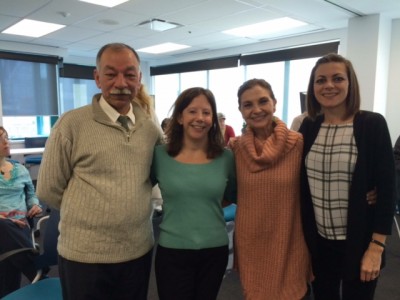NSU Newsroom
SharkBytes
Horizons
This version of NSU News has been archived as of February 28, 2019. To search through archived articles, visit nova.edu/search. To access the new version of NSU News, visit news.nova.edu.
This version of SharkBytes has been archived as of February 28, 2019. To search through archived articles, visit nova.edu/search. To access the new version of SharkBytes, visit sharkbytes.nova.edu.
CAHSS Presents at Second International Symposium on Teaching about Terror, Extremism, and Trauma
Cheryl Duckworth, Ph.D., faculty in the Department of Conflict Resolution Studies (DCRS) in NSU’s College of Arts, Humanities, and Social Sciences (CAHSS) along with Aleks Nesic, Ph.D., graduate of the DCRS doctoral program and DCRS students Crystina Wyler and Saed Kakei, presented at the 2nd International Symposium on Teaching about Terror, Extremism, and Trauma (TETT 2016) held in Montreal. This year’s focus was, “The Radicalization of Youth in a Post 9/11 Context.”
Co-convened by Duckworth, Ayaz Naseem, Ph.D. and Adeela Arshad-Ayaz, Ph.D., at Concordia University, the symposium critically engaged the intersection of education, peace building, peace education and countering violent extremism. Duckworth’s focused on the teaching of 9/11 and its intersection with larger narratives of war, peace and chosen trauma. Nesic presented on the role of global citizenship education in preventing violent extremism. Kakei focused on the rise of ISIL and conceptions of the nation state as an imagined community in the rise of violent extremism.
